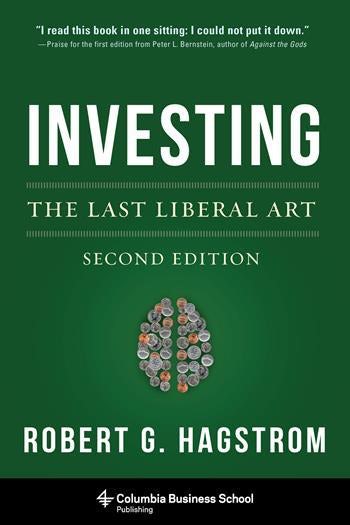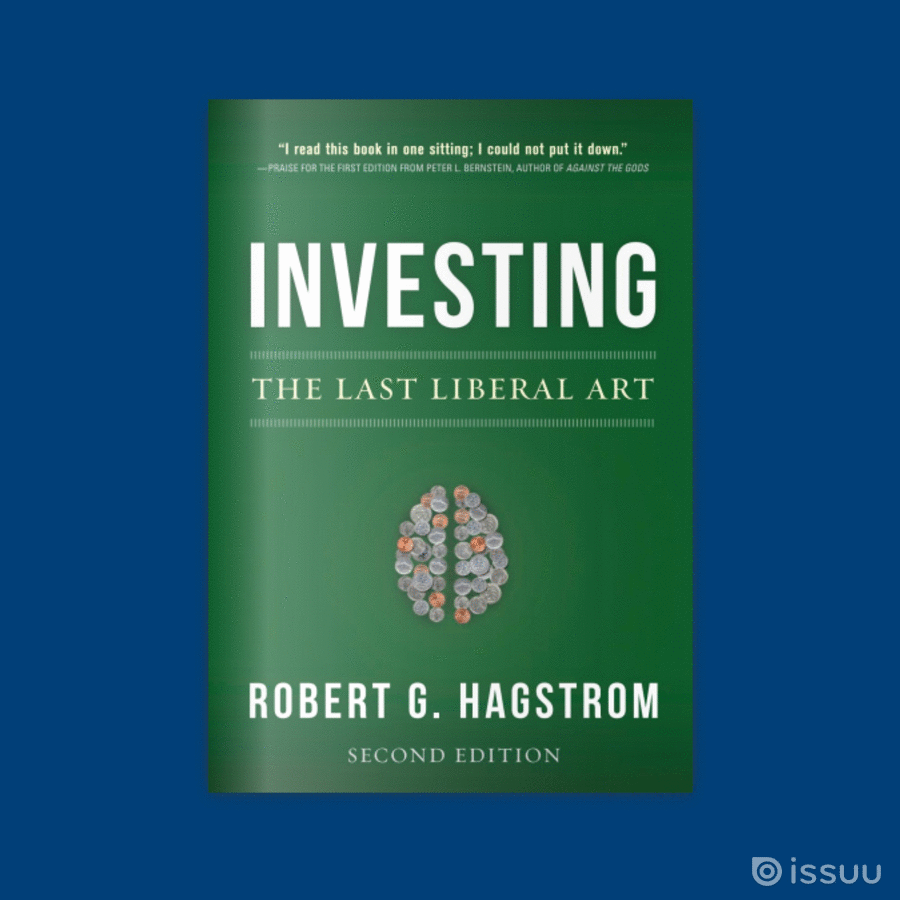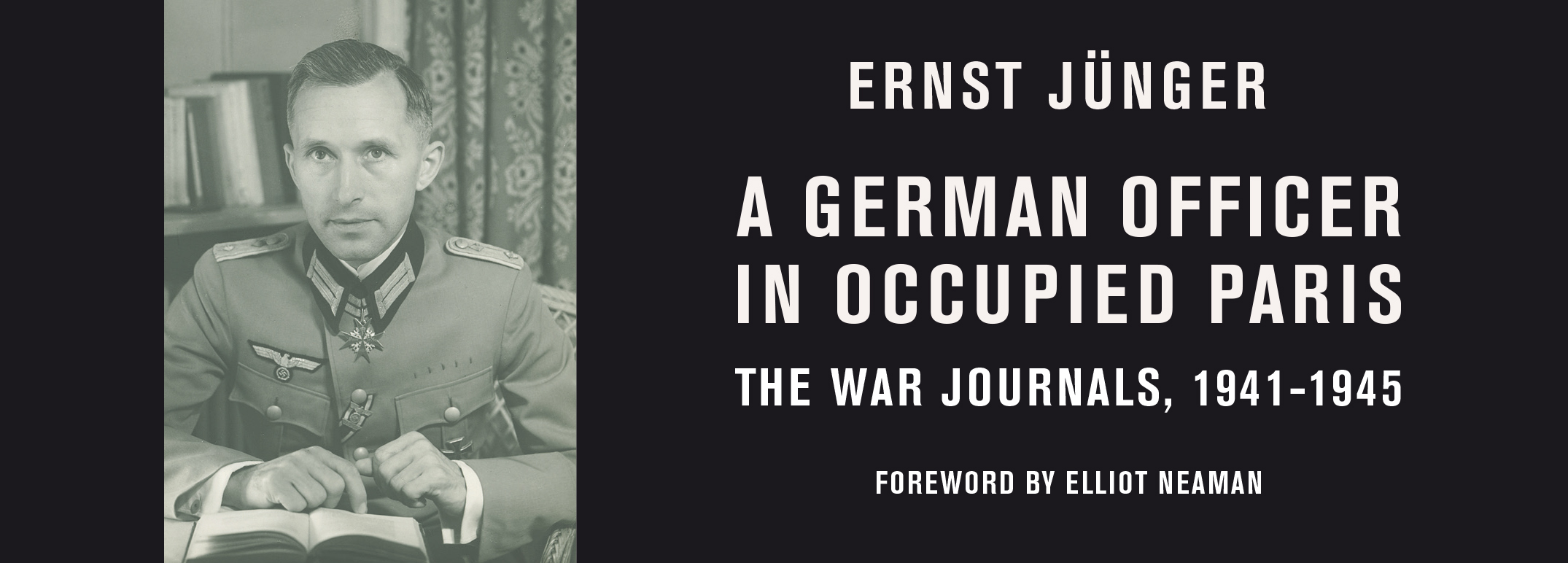The Pivot Back to Multidisciplinary Investing
By Robert G. Hagstrom

“Successful investing requires hard work and mental acuity. Investing: The Last Liberal Art allows you to approach the task with a full set of power tools instead of a simple screwdriver. Robert Hagstrom masterfully makes the case for a multi-disciplinary approach and then equips you with a dazzling array of ideas from essential fields of study. I wish I could have read this book 25 years ago.”
~Michael Mauboussin, author of More Than You Know: Finding Financial Wisdom in Unconventional Places
The world of investing is becoming more complex. In today’s guest blog post, Robert G. Hagstrom, author of Investing: The Last Liberal Art, draws on the investing philosophy of Charlie Munger to discuss the “T-shaped skills” that are essential to successful investing.
Enter our drawing for a chance to win a free copy of Hagstrom’s book and check out more posts from Columbia Business School Publishing authors.
• • • • • •
The idea to use a multidisciplinary approach to investing was the brainchild of Charlie Munger, vice chairman of Berkshire Hathaway. Charlie, a polymath, introduced the concept of building a latticework of mental models in order to improve one’s investment results in a now famous 1994 lecture at the Marshall School of Business at the University of Southern California.
Rather than talk about the stock market specifically, Charlie mesmerized the students with a talk about “stock picking as a subdivision of the art of worldly wisdom.” He challenged the students to broaden their views of the market, finance, and economics and to see them not as separate disciplines but as a larger body of knowledge, one that incorporates physics, biology, social studies, psychology, philosophy, mathematics, and literature.
“In this broader view, Charlie suggested each discipline entwines with and, in the process, strengthens every other.”
In this broader view, Charlie suggested each discipline entwines with and, in the process, strengthens every other. From each discipline the thoughtful person draws significant mental models, the key ideas that combine to produce a cohesive overall understanding. Those who cultivate this broad view are well on their way to achieving worldly wisdom, without which success in the market is merely a short-lived fluke.
Despite the logic of Charlie’s argument, the investment management industry over the past thirty years has not embraced broader multidisciplinary thinking but rather has worked to promote more and more knowledge within each finance silo. Investment professionals have become more specialized not less.
But in the category “it is never too late,” the investment industry may be poised to pivot its thinking on multidisciplinary thinking. In a recent publication, “Investment Professionals of the Future: Changing Roles, Skills, and Organizational Cultures” (May 2019), the CFA Institute conducted a global survey of its members. The survey revealed that of the four major skill sets identified for future success, T-shaped skills were the highest rated.
What are T-shaped skills? Simply put, it is the ability to connect across disciplines. At the top of the CFA Institute’s recommendations for success, investment professionals are strongly urged to continue to learn and adapt their thinking. These are the key components for a multidisciplinary framework for investing.
“As the investment world becomes more complex, not less, it is imperative that our we advance to a more sophisticated stage of mental development.”
Today, the challenges that investors confront, called complexity gaps, require more than just polishing technical skills within a chosen specialty. As the investment world becomes more complex, not less, it is imperative that our we advance to a more sophisticated stage of mental development. We must find adaptive, nontechnical means to meet the ever-increasing challenges of investing. In doing so, we avoid what the philosopher and mathematician Alfred North Whitehead called “the fatal un-connectedness of academic disciplines.”
Save 30% on Investing: The Last Liberal Art and other CBSP books when you order from our website by using coupon code: CUP30 at checkout.




